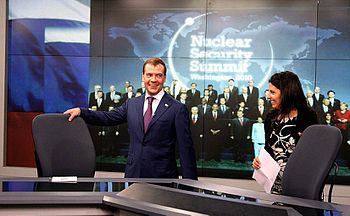
Actors, in a word, act. They don’t play themselves. They portray other people.
Bryan Cranston is not really a dentist (Seinfeld) or a chemist who makes methamphetamine (Breaking Bad). Christina Hendricks is not really a con artist in space (Firefly) or the office manager of an advertising firm in the 1960s (Mad Men). They’re actors. They act.
Joseph Fiennes acts, too. He’s not really Michael Jackson. He’s just an actor who plays Michael Jackson in an episode of the British comedy show Urban Myths. That episode was pulled from play by Sky TV after much-publicized outrage (from, among others, the late pop star’s family) over a white actor playing a black character.
The cast of the Broadway musical Hamilton aren’t really heroes of the American Revolution and founders of the United States. They’re just a bunch of black actors playing a bunch of white characters. They’ve enjoyed popular success and critical acclaim for doing so.
One of these things is not like the others.
One of these things is not like the dream of the man whose namesake holiday Americans celebrate on the third Monday of each January.
That dream: “[T]hat my four little children will one day live in a nation where they will not be judged by the color of their skin, but by the content of their character.”
No one doubts that Fiennes is a master of his craft. He’s performed as a member of the Royal Shakespeare Company. He’s won the Screen Actors Guild Award for Outstanding Performance by a Male Actor in a Leading Role. IMdb credits him with 37 film and television roles and single turns as director and producer. He’s appeared on screens big and small as a Soviet commissar, a Catholic clergyman, Merlin, and of course as Shakespeare himself.
But for some reason casting him as an African-American musician is beyond the pale.
Michael Jackson’s daughter tweets that she’s “incredibly offended” and that it makes her “want to vomit.”
Jackson’s nephew refers to the casting decision as “blatant disrespect.”
Fiennes isn’t being judged on his acting skills, on whether or not he captures the essence of Michael Jackson’s personality and successfully conveys that essence to viewers. He’s being judged on the color of his skin, and the show’s creators are being judged on their decision to ignore his skin color.
Racism, by any other name (to butcher Juliet’s line), is just as repugnant.
Thomas L. Knapp (Twitter: @thomaslknapp) is director and senior news analyst at the William Lloyd Garrison Center for Libertarian Advocacy Journalism (thegarrisoncenter.org). He lives and works in north central Florida.
PUBLICATION HISTORY
- “The Jackson Family versus Martin Luther King and the Cast of Hamilton,” by Thomas L. Knapp, OpEdNews, 01/16/17
- “The Jackson family versus Martin Luther King and the cast of Hamilton,” by Thomas L. Knapp, Montgomery, West Virginia Herald, 01/18/17


